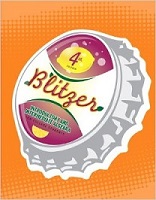Email Address:
tbusken@miracosta.edu
Website: timbusken.com
Required Materials::

MW 1:15 - 3:10 pm
Room: OC 3508
Final:
Monday, December 14th
1:00 - 2:50 p.m.
15% quizzes
10% homework
20% ch 3&4 midterm
25% ch 5&6 midterm
30% Final Exam
A 90% — 100% Excellent
B 80% — 89% Above Average
C 70% — 79% Average
D 60% — 69% Below Average
F 0% — 59% Failing
Recommended Materials:
Office Hours I will be available to assist you before class and after class in our classroom.
Prerequisites: The pre-requisite is Math 20 or adequate score on the placement test.
Disability Accommodations Students with disabilities, whether physical, learning, or psychological, who believe that they may need accommodations in this class are encouraged to contact DSPS (Disabled Students Programs and Services) as soon as possible to ensure that such accommodations are implemented in a timely manner. Their phone number is (760) 795-6658 and they are located in Building 3000 Student Services, room 3009. This is adjacent to parking lot 3C. If you have medical information you need to share with me, or if you have special arrangements in case the building must be evacuated, please make an appointment to discuss your accommodation.
Course Description: Designed to prepare students for intermediate algebra, this course teaches: simplifying algebraic expressions involving polynomials and rational terms; factoring; solving linear equations; solving quadratic and rational equations using factoring; analyzing graphs of linear equations; and solving applied problems.
Please Note: This instructor reserves the right to add, change or modify the syllabus and calendar, including test days, by announcing such changes in class.
Student Learning Outcomes:
| Reactive (Negative) Language | Proactive (Positive) Language |
|---|---|
| I’ll try. | I’ll do it. |
| That’s just the way I am. | I can do better than that. |
| There’s not a thing I can do. | I have options for improvement. |
| I have to. | I choose to. |
| I can’t. | I can find a way. |